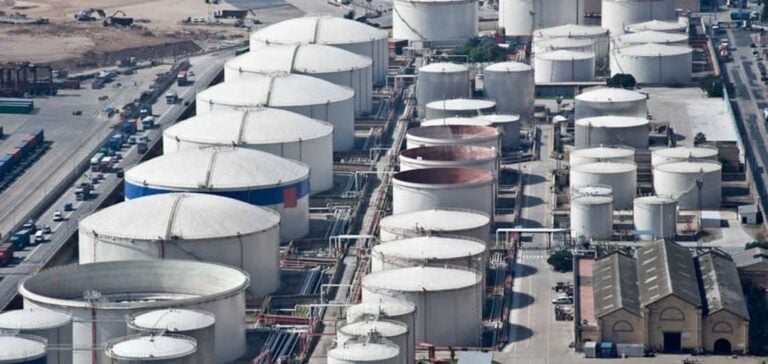US commercial crude oil inventories unexpectedly fell by 3.1 million barrels to reach a total of 453.7 million barrels last week, according to data released by the Energy Information Administration (EIA). This figure sharply contrasts with analysts’ average forecasts, which anticipated a smaller decline of around 800,000 barrels. Meanwhile, the key storage hub at Cushing, Oklahoma, recorded a slight increase of 700,000 barrels, bringing its total volume to 41.8 million barrels. The EIA noted that domestic crude production remains unchanged, holding steady at a stable level of 13.3 million barrels per day.
Rise in gasoline inventories and decline in distillates
Regarding refined petroleum products, EIA data indicated a slight increase in gasoline stocks, which rose by 500,000 barrels to reach a total of 219.6 million barrels. Conversely, distillate inventories, which notably include diesel and heating oil, declined by 1.2 million barrels to 110.9 million barrels. Refinery capacity utilisation slightly decreased, now reaching 93.6%, down by 0.5 percentage points from the previous week. This drop in refinery activities comes as the summer period approaches, typically characterised by an increase in seasonal demand for road fuels.
Immediate reaction from international markets
Global oil markets quickly reacted to this unexpected drop in US inventories. Thus, crude oil prices significantly rose following this announcement: Brent, the global benchmark, increased by 0.8% to trade at around $78.60 per barrel. For its part, West Texas Intermediate (WTI), the US benchmark, saw its price climb by 0.9% to $74.30 per barrel shortly after the release of the data. Market reactions reflect investors’ continued focus on weekly variations in US oil stocks, considered a key indicator of global supply-demand balance.
Market under tension context
The reduction of US reserves occurs in an international context marked by increased vigilance regarding the global supply-demand balance. Recent decisions by the Organization of Petroleum Exporting Countries and its allies (OPEC+) to continue their voluntary production cut policy are also strongly influencing market sentiment. The maintenance of OPEC+’s strategy, combined with persistent geopolitical tensions in certain producing regions, further heightens analysts’ and investors’ attention towards weekly changes in American oil inventories.






















